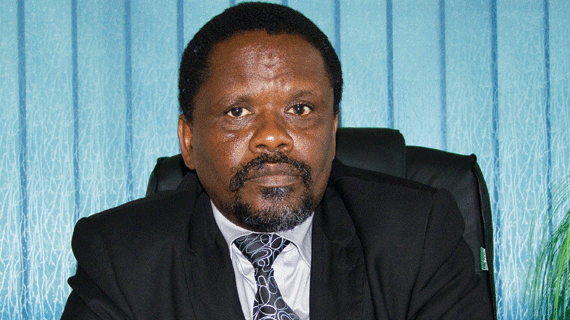
OF late it would appear the judicial institution has become livid on a number of current issues.
First, it was Chief Justice Godfrey Chidyausiku’s address on the state of affairs at all of the courts, Supreme Court judges seem to have been spared the scrutiny by Chief Justice, I stand to be corrected, if that is not the case. The High Courts, Labour Courts and Magistrates’ Courts judges performance was put under spot light.
However, a reading of the judges’ response to Chidyausiku’s assessment of their performance brings in another dimension of the argument.
According to sister paper NewsDay Febuary 11 2015, the judges argued that some delays in concluding some matters were a result of party political interference.
That is party driven litigation, in judges’ own words. This admission by the judges vindicates the deep rooted perception that there are some people above the law.
Judges go on to unpack what in their view is a true backlog. Such a backlog must comprise matters allocated to a judge, but if for any reason, the judge fails or neglects to dispose of the same within the period of time expected, the judge’s argument would in the mind of an average judge constitute a true backlog.
In addition, the judges complain that the performance statistics were compiled without their input, meaning they did not have time to clarify some grey areas.
In the judges’ view, there is need to use a more holistic, fair and comprehensive yardstick that not only interests itself in quantity, but also the quality of judgment.
- Chamisa under fire over US$120K donation
- Mavhunga puts DeMbare into Chibuku quarterfinals
- Pension funds bet on Cabora Bassa oilfields
- Councils defy govt fire tender directive
Keep Reading
That as it may be, the judges could be making a point, however, quantitatively the margin between the lowest and highest performing judges was too wide.
How do you explain one judge handling only four judgments in a judicial calendar and another disposing of almost twenty times more cases. A case of sour grapes could not be ruled out in this instance.
At face value, Chidyausiku’s assessment of judges was welcome as it was, I suppose, meant to encourage productivity within the courts system.
In any case, the ongoing backlash was to be expected, seeing we are dealing with legal minds whose very nature of training is to argue and convince the other party.
In addition, there is a feeling of being undermined within the judges. Any reproach to them hurts their highly esteemed status quo and as such must be challenged vigorously.
It would appear, there has been simmering disgruntlement within the judicial service, since the interviews for Supreme Court judges went public. Before the ink dried up, there was again this public assessment of the judges’ performance.
In another stinging attack, judge Justice Francis Bere in the NewsDay Febuary 10 2015 issue argued that there was no law which compelled motorists to deposit a fine to the police, especially if they desired to challenge the alleged offence.
One can further state that forcing a motorist to pay a spot fine was tantamount to extortion. At the same time, it is not a crime to drive without money to pay spot fines.
Bere further argues that the collection of spot fines by police is not in terms of section 356 of the Criminal Procedure and Evidence Act, Chapter 9:07.
The said section does not arm police officers with power to force motorists to pay a fine or the spot if he does not have money.
The impounding of motorists vehicles for failure to pay a spot fine is in fact a constitutional contravention of one’s entitlement to free movement in terms of section 66 of the Constitution.
The Herald Febuary 11 2015 carried a press statement by Chief Superintendent Paul Nyathi. In the said statement he refers to Bere’s statement as his personal opinion which had nothing to do with payment of spot fines.
Nyathi suggested that ZRP had a zero tolerance for corruption. Sadly traffic officers are viewed as the most corrupt of uniformed staff.
Finally, Nyathi viewed Bere’s statement as an interference in the separation of powers between the Executive, Parliament and Judiciary.
Any legal mind will tell you that judges’ statements, precedents are among the good sources of law. The interpretation of law lies with the courts.
In the three pillars of State, namely, Executive, Parliament and Judiciary, ZRP is nowhere mentioned. If anything, Chief Superintendent Nyathi is interfering with the Judiciary in its duty of interpreting the law, if not in contempt of the Judiciary. As a senior police officer, he should know better.
Live on lively debate – this could be the dawning of a new era for freedom of expression.
Feedback: E-mail: [email protected]










